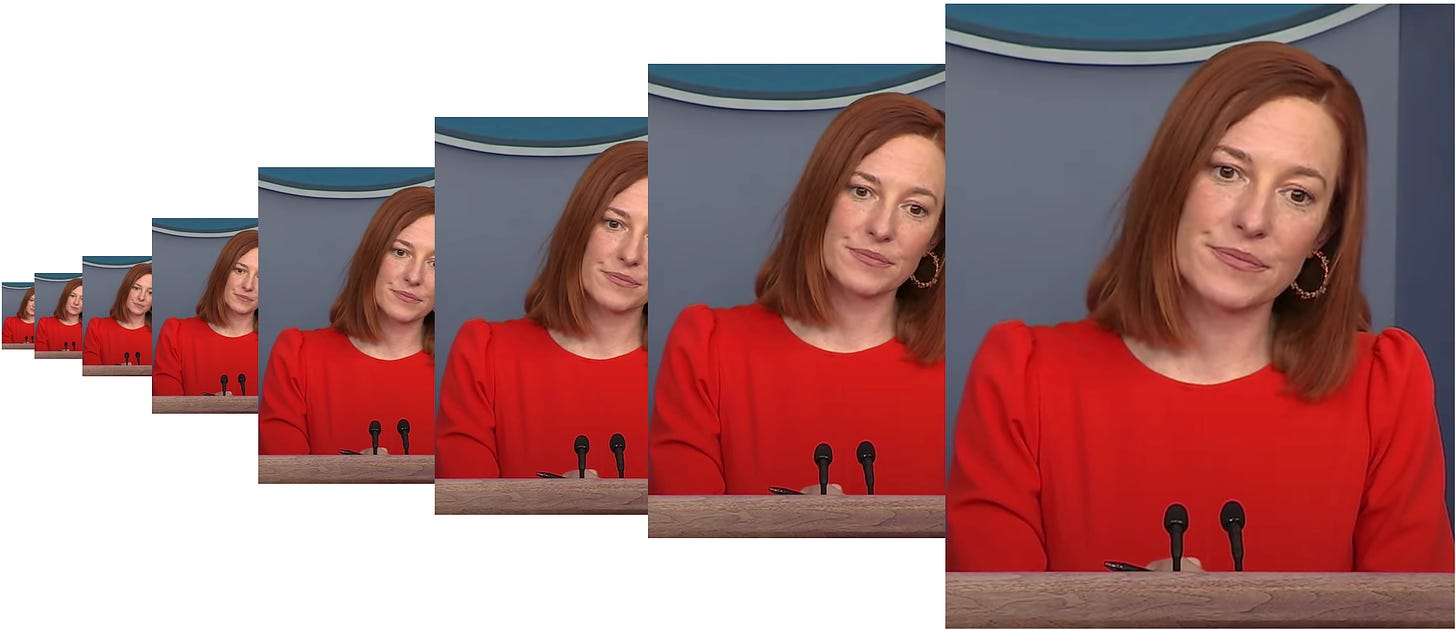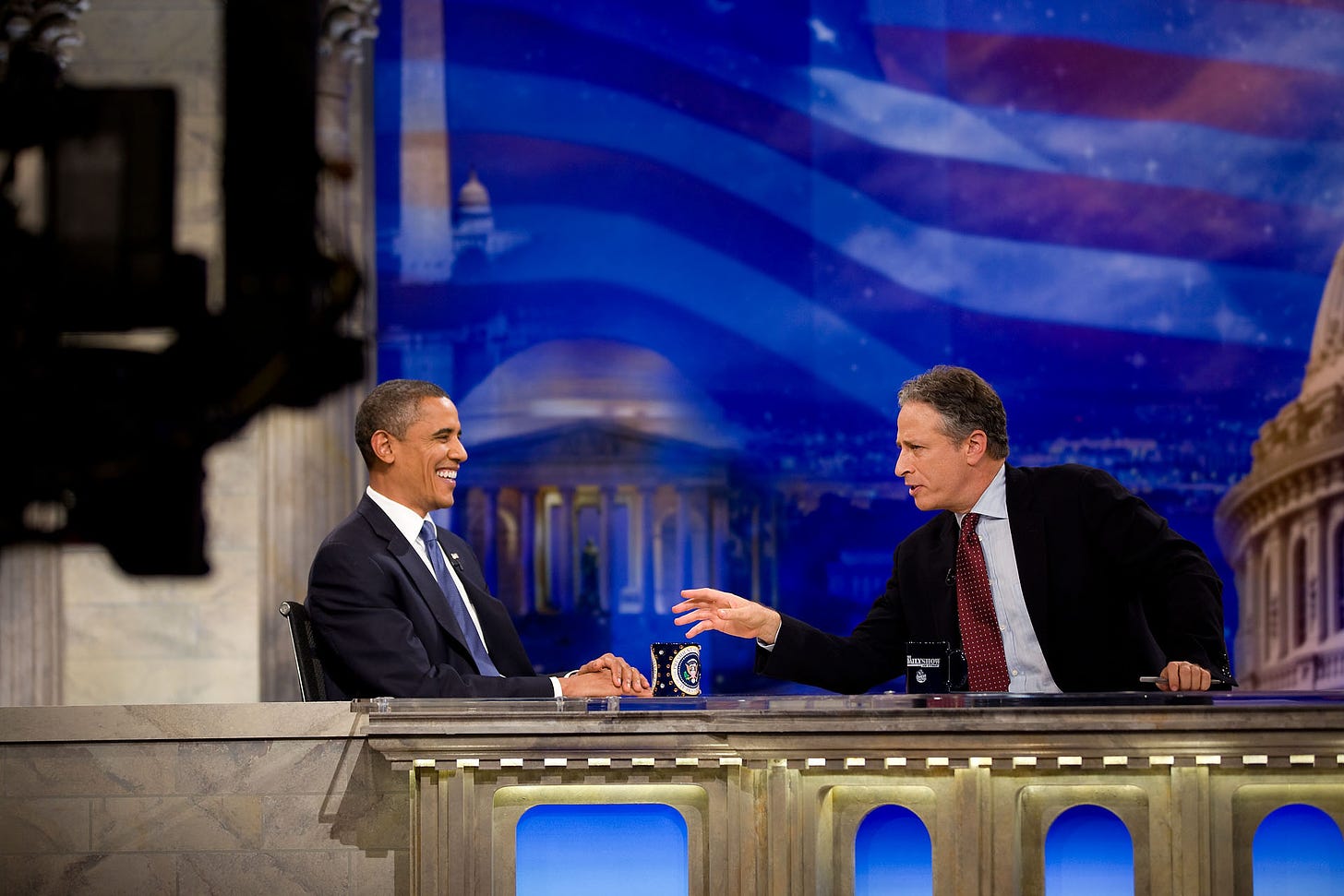Why the Media Shills for Government
Jen Psaki is now moonlighting as press secretary. That's a problem.
Once upon a time, government and media were not great friends. Government wanted to encroach upon media, and media wanted to flee from the clutches of government. As a compromise, we created something called press freedoms to ensure that the media could stay free from government interference, while serving as a watchdog for democracy, known in the US as the Fourth Estate.
From today’s vantage, that picture of government and media locked in tension does indeed seem like a fairy tale. In our world, the evil stepmother (government) and the trod-upon-orphan-princess (media) are now in cahoots, laughing it up on the way to the ball while the public scrubs the floor.
For the past 20 or 30 years, we’ve seen a gradual slide in the previously tense relationship between truth and power into one of slick corruption. The oil-and-water barrier between government and media, built into the very concept of American democracy, has been dissolved by a third force: big business. Brand, media and government now regularly unite, sometimes in spectacle (see White House Correspondents Dinner or Met Gala), sometimes in concerted effort (the mainstream media shutting down a fellow newspaper’s reporting on the Hunter Biden corruption scandal in service of the reigning party), but almost always with remarkable effectiveness.
This is something corporate America lovingly refers to as “synergies,” interlocking nodes of power that reduce inefficiencies, deepen market share, and increase profitability. All wins and no losses—for the company. The cutting of jobs or reduction in competition are mere externalities: problems that hurt someone else.
With the hiring of a sitting press secretary, Jen Psaki, by a media organization, we have reached peak-greasiness. Of course, the revolving door between government and media has been turning for quite some time. A government official would leave her post and go ply her trade, whether law or business or whatever, often at a high level. Or, in reverse, a brilliant journalist would get snapped up by a savvy politician. (See: Sidney Blumenthal.)
The difference today, however, is that government officials leave their posts in order to do something they have no experience doing. After her stint in the Obama administration, Jen Psaki went to CNN to become a commentator, despite having no experience in journalism. She was hired because she had been in government. Jay Carney, Obama’s press secretary, went off to lead communications for Amazon despite having never worked in a corporate setting.
No doubt, these individuals gain adjacent experience from their government jobs, but what’s really being sold isn’t simply their experience but their access. As Hunter Biden—a man who leveraged someone else’s position in government for a high-paying position he had no experience in—demonstrates, power is worth its weight in board seats. (Though, to be fair to Hunter, Chelsea Clinton pioneered the approach when she scored a $600,000-a-year job with NBC as a “commentator.”)
But with Psaki’s hiring, we’re watching the spin-rate of the revolving door ramp up. In this case, Psaki and MSNBC couldn’t even wait for the press secretary to leave her current job before announcing her new one. While there might be some justified concern that Psaki could favor her soon-to-be corporate home, granting extra access to the outlet and going soft on its reporters in briefings, the big concern goes the other way: Why wouldn’t MSNBC shield its new star (and, therefore, her boss, the president) from the harsh sun of journalistic scrutiny? After all, no news channel wants an anchor on air with a horrendous political sunburn glowing on her face.
This may all sound hopelessly naive after four years of watching the press push a narrative about the previous president that turned out to simply be not true—and then do nothing to rectify the narrative or even investigate why it went so wrong. (In this, the media is beginning to resemble an imploding army which, neglecting to examine its failures in favor of propping up fake victories, steadily leads itself to disaster.) But the media openly loathed Trump, and in acting on its animus it at least believed it was doing the right thing.
With the hiring of the sitting White House press secretary, MSNBC is violating a standard widely held by nearly all the media—that there should be a firewall between government and the press. And yet, aside from one story about dissent among some reporters at NBC, the media has been achingly silent on the issue.
For years, the American media has spoken passionately about the importance of the freedom of the press. But that “freedom” always implied freedom from government interference. That is no longer a concern, as government and media now work hand-in-glove. What has been lost is the flip-side of freedom: independence.
Freedom always begins with independence, which is the functional value to the more idealistic virtue of freedom. But if freedom is the end to which we aspire, independence is the road by which we arrive there. It’s no coincidence that the first foundational document of American democracy is a “Declaration” of this value.
The media’s independence is in a state of jeopardy, if it has not been completely lost already. This is precisely why the public no longer trusts the media. Even if they cannot pinpoint what, exactly it is, they know an agenda is being served. But on occasion, as when a news organization hires a government official before that official has even stepped down (much like a surgeon starting an operation before the anesthesia has kicked in, the agenda is so brazen, so bald, that trust is no longer even a question.
Like my media commentary? Join the Ministry of Truth Substack today. It’s free (for now).





